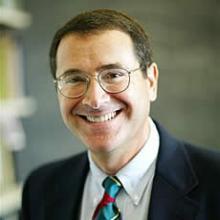Painting and Revolution: Manet and Degas at the Metropolitan Museum of New York
Side by side at New York’s Metropolitan Museum, this exhibition is a forceful reminder of why Édouard Manet and Edgar Degas were of such revolutionary significance. Manet was the father of modern art according to Clement Greenberg – the Immanuel Kant of painting – because he probes the conditions of painting itself. In fact, this is true of both painters here. Both are steeped in the history of Western painting, both have made thorough studies of Rubens (“Rubens is God,” Manet would exclaim). Their studies of Velasquez, and Delacroix are on display here. They have drunk deep from the well of the Old Masters, and at the same time they are intent on transforming the tradition all together. An overly simplified way of putting it would be to say their painting is about painting; but true as that might be it does not begin to do justice to them – indeed, we could say much the same thing about the masters they learned from. The true subject of Velasquez’ painting – in particular, Las Meninas (1656) – is painting itself. What is new about Manet and Degas is what they have to say about painting—about light, color, form, and composition, and indeed what counts as legitimate subject matter. And what these things reveal about the world, about our access to the world in its most essential aspects. How can painting, image making, reveal the real? How can pigment on canvas give us the thing itself, an apprehension of the world more real than reality?
The show commences with self-portraits of Manet and Degas and it is a fitting introduction to this extraordinary exhibition. Manet’s is the more radical of the two: Degas’ is confident and composed, revealing the young painter’s virtuosity, his indebtedness to Ingre in terms of his seamless brushwork. Manet does not hide his brush, figuratively or literally: he paints himself in the very act of painting, palette with paint and brushes in his right hand and in his left the brush which he is presently using. He is not posing like Degas: he is working. And that is the clue to Manet’s work. He paints painting, regardless of his subject: he paints the medium itself, it as if he is constantly reminding us that this is a painting, that this is pigment, material stuff which he is spreading across the canvas. He does not elide his brushwork but revels in it. This is a new conception of painterly truth at play here, a new fidelity to truth. Manet is the Kant of painting because he initiates a similar kind of “Copernican revolution” – we do not see the world as it is but as we are. The subject plays an active and positive role in constituting the object; in other words, subjectivity is not a limitation on our access to the world, but the condition of our having a world at all. That is Manet’s painterly discovery: that we know objects because in a sense we create them.
Among the many daring pieces on display is Degas’, In a Café (The Absinthe Drinker) (1875-76). It was not only the “very disgusting novelty of the subject,” to which at least one contemporary reviewer objected, but its “slap-dash” manner. Another contemporary described it as “artless and sincere” – and certainly its frankness is beyond doubt. A woman with sallow complexion, in drab and dirty attire sits staring sullenly into space. The glass before her, with its pale green contents is the absinthe referred to in the painting’s title. To the right of her sits a man (presumably the painter Marcellin Deboutin whom Degas and Manet knew well), smoking a pipe and peering off canvas. They are together, yet disconnected, each in their own world. There is certainly nothing slap-dash about the composition, the way Degas organizes his frame: we are looking at the drinkers as if we are literally sitting behind a table perpendicular to their own (in fact Degas signs his name on that very table). In other words, the viewer is not just a disembodied spectator, but a patron: we are truly in the café – and the effect of this is to create a sense of being-with, of recognizing the man and woman not simply as a forlorn and intoxicated couple (in fact, Deboutin was not a drunk), but as one of us, or of us as one of them.
Among the most remarkable but unfamiliar of Manet’s work on display are those depicting the bloody aftermath of the Paris Commune of 1871.There is no question regarding Manet’s condemnation of the Versailles government’s actions following the defeat of the Commune, when some 25,000 Parisians were gunned down, including women and children. This is the founding of the first worker power in history. It is something new, unprecedented, a totally unforeseeable event in which Paris truly becomes “the capital of the human race,” as Victor Hugo put it. The Commune lasts 72 days, and ends in bloody massacre, which Manet depicts in several works including a lithograph, The Barricade (1871) – with a firing squad executing Communards, it a fearsome indictment of the repression during ‘Bloody Week,’ where we also find references to Goya’s The Third of May 1808 (1814), itself a groundbreaking image of the horror of war.
Although he remained outside of Paris during most of the Commune, Manet returned to witness the atrocities that Versailles troops committed against ordinary citizens; and made a lithograph, Civil War (1871-73) based on sketch from life of one such scene of slaughter: a dead National Guardsman lying beside a barricade, while jutting out from the lower right-hand corner is a pinstriped pant leg referring to one of the countless civilian causalities. What is so important and timely about these scenes of horrific violence is not only Manet’s insistence that we memorialize the fallen Communards, but that he also recognizes that the Commune’s defeat does nothing to diminish its ultimate truth value: it is Manet reminding us, 150 years later, that these fallen heroes were they very the vanguard of humanity. The event itself lasted a little over two months, but the Commune inaugurates a political truth that remains timeless, eternal: it demonstrates for all time that a popular, working-class uprising can be victorious. As American-Scottish artist Zoe Beloff observes, reflecting on the almost photographically cropped Civil War, ‘we are still fighting their fight.’ Manet signs his name on a stone in the lower left-hand corner, as if to express his recognition and solidarity with those downtrodden elements of society without which the Commune – this singular event in human history – would not have happened at all.
This exhibition is far too rich and varied to do any justice in short review such as this. I have chosen to focus on a small handful of works which, though not so famous as some of the others on view, continue to speak to us today with an urgency that can hardly be denied.
Sam Ben-Meir is an assistant adjunct professor of philosophy at City University of New York, College of Technology.

















